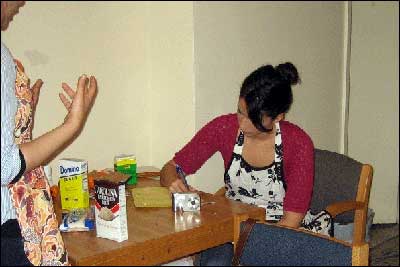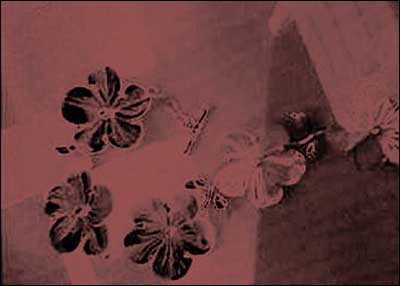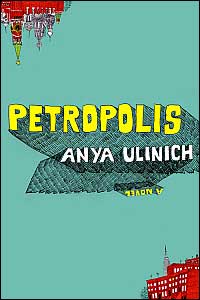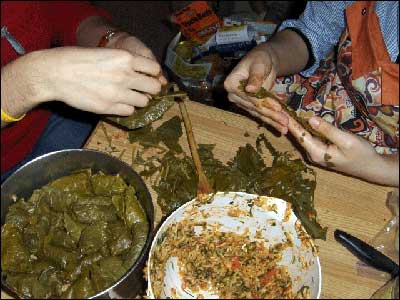
Weaving my way through the cramped aisles of the Middle Eastern import shops near my home, I felt a pang of nostalgia for my family in Egypt. As a little girl, I’d watched my aunts sift through bags of rice and roll stuffed grape leaves into neat logs. But it’s been 14 years since I was last in Egypt. I realized I was an outsider.
Growing up in Virginia with a Scottish mother and Egyptian father, I lived in a blend of accents, skin colors, and tastes. My mother whipped up everything from cornbread and chili to shepherd’s pie and Peruvian stew. I knew the difference between coriander and cilantro by the time I was six, and I could name all the vegetables at the farmer’s market. But Egyptian food was mostly a mystery.
In the Arab world, culinary traditions are usually passed down from mother to daughter, and, far away from his mothers and sisters in Egypt, my father had no way to recreate the dishes he ate growing up.
In college, I took classes on Arabic language, politics, and history. But I was missing something essential.
“I bet my mom’s goulash is better than yours,” one friend boasted.
“What’s goulash?” I whispered to another friend, Sara Elghobashy.
Her large Egyptian eyes widened.
I might have been well-versed in the rise of the Ottoman Empire, but I was a stranger to daily Arab life.
So Sara, raised in New Jersey but born in Egypt, agreed to teach me how to cook like an Egyptian.
Food is a pivotal part of Arab culture.
“I would much rather offer someone a plate of hummus than lecture to them on the geopolitical history of Amman,” says the Jordanian-American author Diana Abu-Jaber, who writes about food in her novels. “I think in the end you probably learn more about Middle Eastern culture — its earthy, delicious, hearty nature — from eating the hummus.”
As Sara and I shopped for ingredients for stuffed grape leaves and Egyptian rice pudding, greater ambitions took hold.
“Why stop with grape leaves?” I thought. “Why not eggplants and peppers and zucchini? Why not kebabs and falafel?”
But wise Sara knew to start slowly. We began chopping onion, parsley, tomato, mint, and dill. Add rice and ground meat, and you have the standard filling for all stuffed vegetables called mahshy. Sara’s roommates and I gathered around the table, and she showed us how to stuff each leaf and roll it into a perfect parcel. Her fingers worked quickly, tucking the green ends in as she rolled, locking all the delicious filling inside.
I gingerly picked up a delicate leaf and plopped a dollop of filling in the center, just as Sara had. But the filling squished out through the edges, leaving me with a messy blob.
“That looks great!” Sara lied, as I placed the blob into a pot lined with onions and peppers to infuse the leaves with even more flavor, a trick Sara got from her mother.
“Growing up, my mother was always in the kitchen, so if you wanted to talk to her, you had to go to the kitchen,” Sara said. “When I got to college, I realized that I could recreate most of the meals just from memory.”
After about five minutes, the pot began to sputter and spit broth. One of my leaves had exploded, spewing rice down the side of Sara’s stove.
For the rice pudding, Sara tossed rice and coconut into a baking dish filled with water and milk. She watched me with a perplexed look as I carefully measured two cups of sugar into a measuring cup.
“I never thought of using one of those,” she said. “All my measurements are from my mother, and two cups for an Egyptian are totally negotiable.”
After about two hours, the grape leaves were tender and the rice inside fluffy. We piled them atop a platter, burying the exploded one at the bottom. Traditionally, a full meal would begin with soup, followed by the mahshy, then either chicken or spiced meatballs called kofta.
The pleasant bitterness of the leaves contrasted nicely with the faintly sweet filling. After dinner, we pulled the pudding from the oven, where it had solidified more than Sara wanted.
“I swear my mother is keeping something from me,” she said while I cut the rice into squares. “No matter how much milk I put in, it’s never as creamy as hers.”
But the pudding was thick and delicious.
Back home, I found an email from my father in my inbox. I hadn’t yet told him about my plan to cook my way into Egyptian culture. But maybe he could smell the rice pudding all the way from Virginia.
“Today I tried to cook rice pudding like my mother used to make,” he wrote. “It didn’t turn out right, though. I called your aunt to ask for help but she didn’t pick up. It’s sitting in the fridge now uneaten.”
“You don’t need to call Aunt Nagwa,” I wrote back. “I’ll teach you when I come home for Thanksgiving.”
And with one click of the send button, I finally felt like an Egyptian.
In The Fray Contributor
Dear Reader,
In The Fray is a nonprofit staffed by volunteers. If you liked this piece, could you
please donate $10? If you want to help, you can also:






 To learn about my heritage, I took classes in Arab politics and history. But they couldn’t make up for what I’d missed in the kitchen.
To learn about my heritage, I took classes in Arab politics and history. But they couldn’t make up for what I’d missed in the kitchen. 

